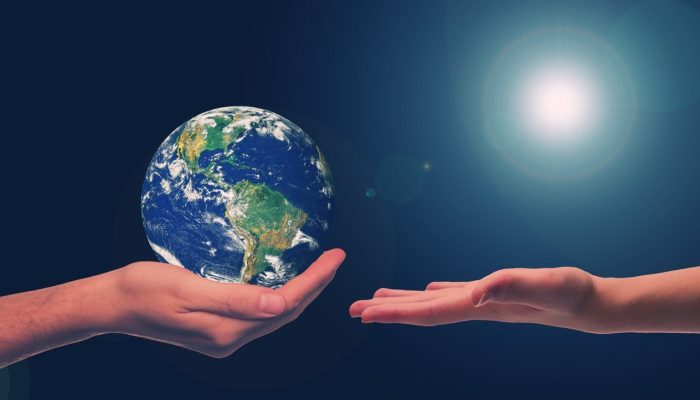
As this year’s pandemic spreads through Brazil, our own Bárbara Zambelli notices a positive shift in the natural environment. In this article, she wonders, what if we shift from an ethics of exhaustion, to one of abundance? This, she argues, is what geoethics is about. [Editor’s note: This post reflects Bárbara’s personal opinions. These opinions may not reflect official policy positions of Geology for Global Development.]
We are living in a very unusual moment in history, facing the worst pandemic of the century. Its impacts are not evenly borne by the world’s population, neither in time nor in intensity.
While some places are living under lockdown, others have already started opening up. New Zealand, as a case of success, has eliminated the virus from its territory.
On the other hand, Brazil, my homeland, stands out as the epicenter in Latin America, holding the world’s second-highest death toll, only behind the US. In this context, a question pops up in my mind almost every day: “how is the world going to be afterward?”
We need to embrace social sciences’ innovations in the same way as we do with technological ones
I have been reading that the Earth is becoming greener, the emission of greenhouse gasses has fallen, coal consumption has sunk, oil prices dropped as never seen before, animals are taking over cities in lockdown, people are being more caring and empathetic – all as signs that the planet is recovering from our impacts.
However, it is important to remember that this is a rebound from unsustainable mining of mineral resources, burning of fossil fuels, management of water supplies and pollution of rivers and soils.
As geoscientists, we know how long it took for the oil and the ores to form and understand the non-renewable nature of most geo-resources.
In addition to it, it is important to highlight that neither the wealth generated by its exploration nor the negative externalities caused by it are distributed evenly in society and over territories.
We can understand as “negative externalities” a range of environmental problems, in addition to growing violence, inequality and conflicts regarding the access to vital resources such as water, food and land.
We need an ethical shift.
Here I cite Professor Silva:
“This is an ethical perception: how we produce life, as well as the importance of the influence of the collective lives in the individual, subjective life. The capacity to produce and reproduce life is hierarchized, evidencing the gradient between living a full life and surviving. The ethical system we live in trivializes the exhaustion of the lives of some so the lives of others can, in fact, be produced and reproduced. The hierarchization of peoples, ecosystems, and knowledges enable a certain ethical subject to prevail over the others. (…)
This is an ethical system of exhaustion, that evidences the need for an ethical change.”
We need a shift from an “ethics of exhaustion” to an “ethics of abundance”. That means genuinely caring for the environment, ecosystems, and living within it, building a more equitable society and a resilient future.
Geosciences are fundamental for sustainable development and for international cooperation. The key approach to connect geosciences with the big interdisciplinary challenges faced in the world today is through social, economic, and political analysis.
We need to embrace social sciences’ innovations in the same way as we do with technological ones. We need to prepare ourselves to take part in dialogs with different stakeholders and policymakers, well as finding ways to be present, to listen, to learn, to be an active part in multi- and transdisciplinary debates.
It is urgent to think about an energy transition, circular economy, responsible mining, adaptation to climate change, water and food security for all.
Taking care of the environment by stopping deforestation also means protecting ourselves from a new pandemic, since “ three quarters of the emerging pathogens that infect humans leaped from animals, many of the creatures in the forest habitats that we are slashing and burning to create land for crops, including biofuel plants, and for mining and housing.”
As a geoscientist, I would say that we should reflect on the values that underpin our behaviours and practices, since our activities interact directly with the Earth System. By doing this we will become more conscious about our social role and responsibilities in conducting our activities. This is what geoethics is about.
“If we could change ourselves, the tendencies in the world would also change. As a man changes his own nature, so does the attitude of the world change towards him. … We need not wait to see what others do.”
**This article expresses the personal opinions of the author (Bárbara Zambelli Azevedo). These opinions may not reflect an official policy position of Geology for Global Development. **
Bárbara is on Twitter and Instagram as @taiobarbara and can be contacted by email at ba.zambelli[at]gmail.com



Alexandre Barbosa
Quite relevant! Geoethics is the way.